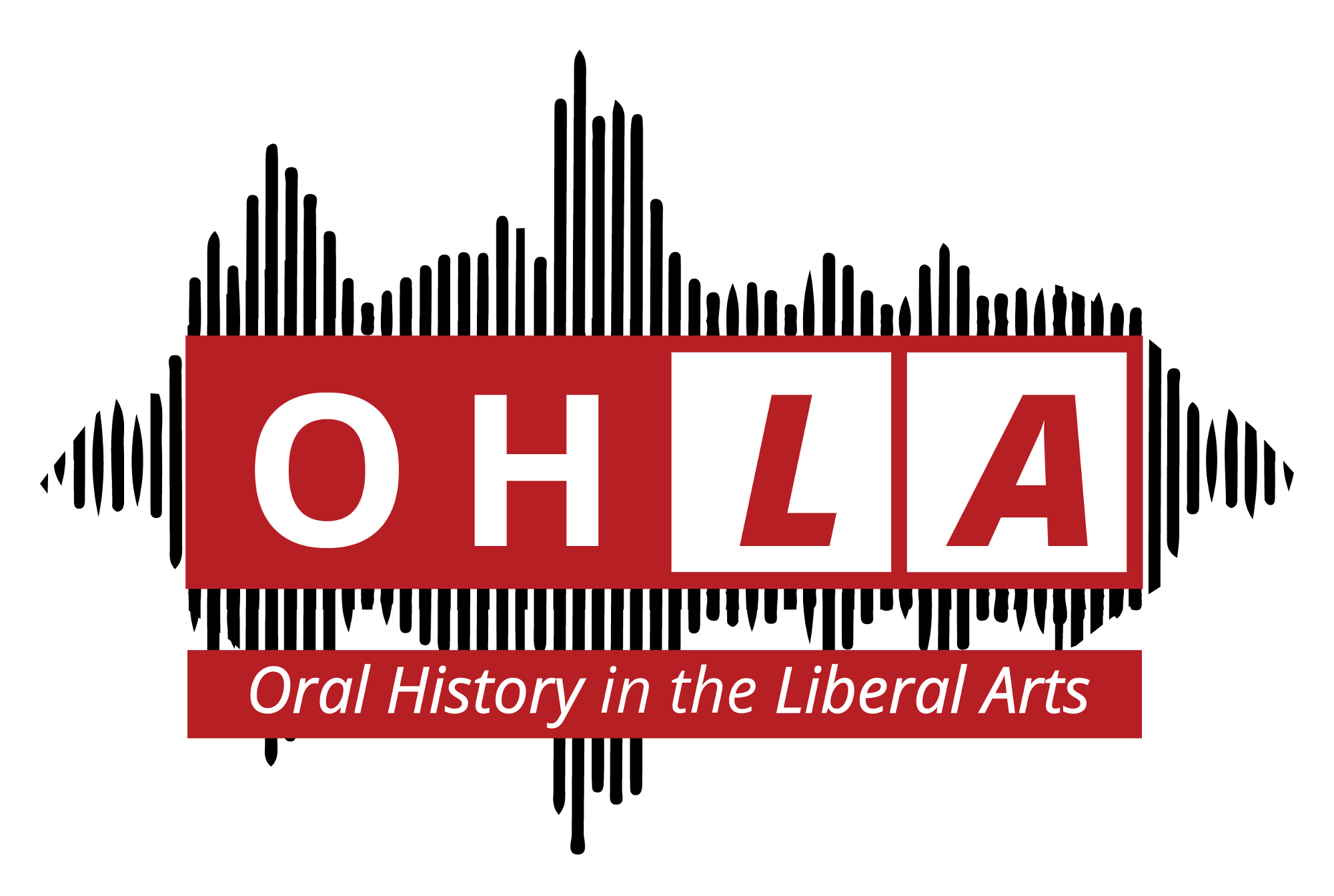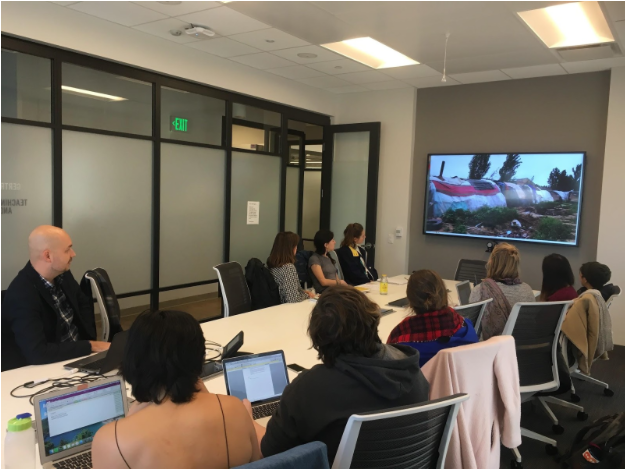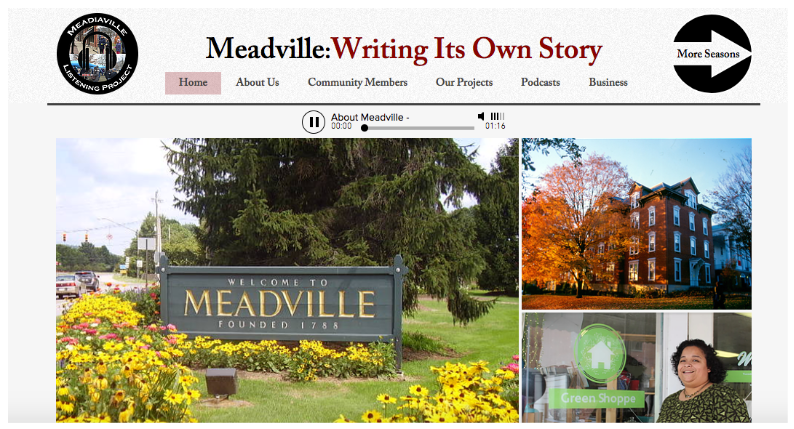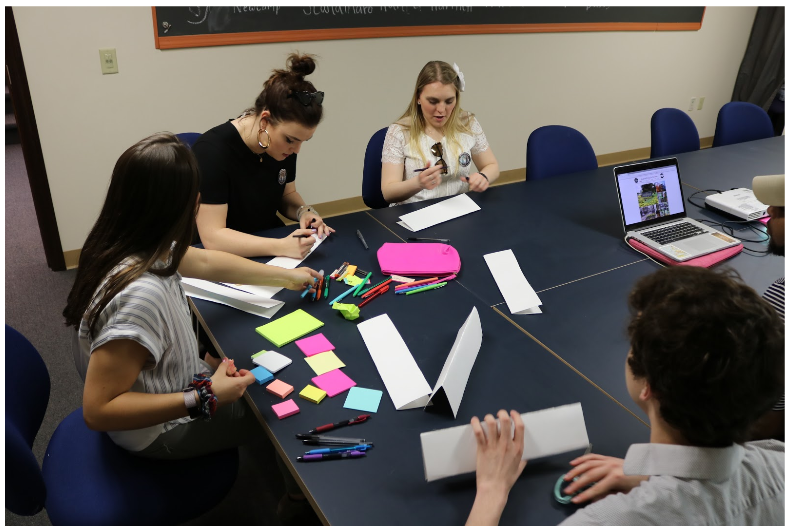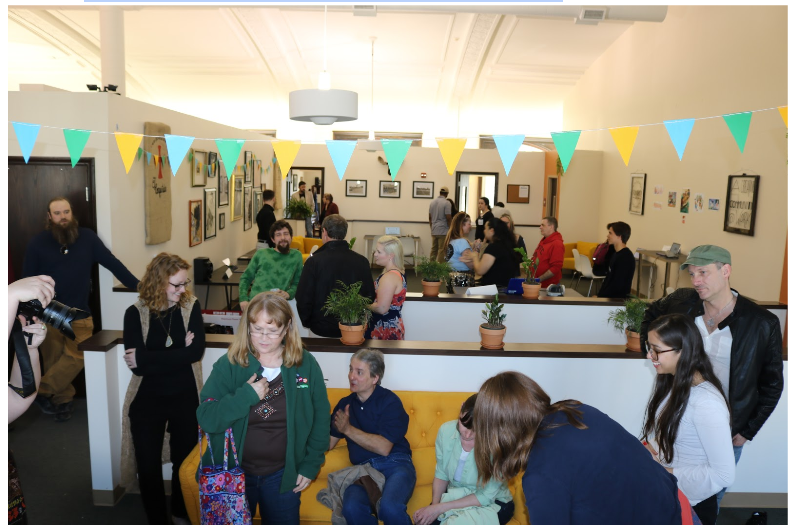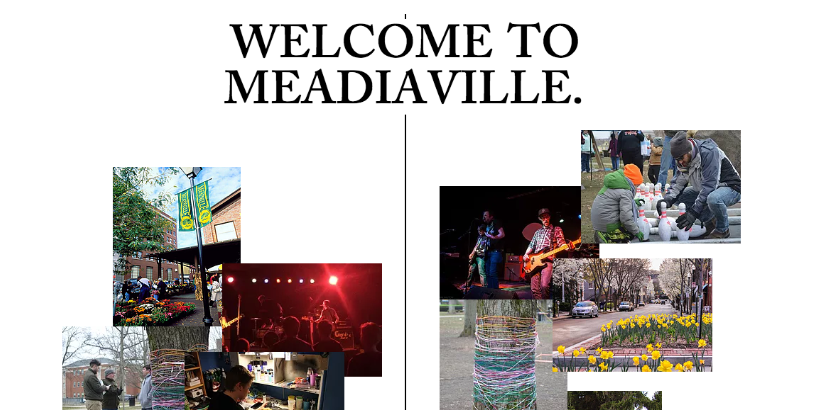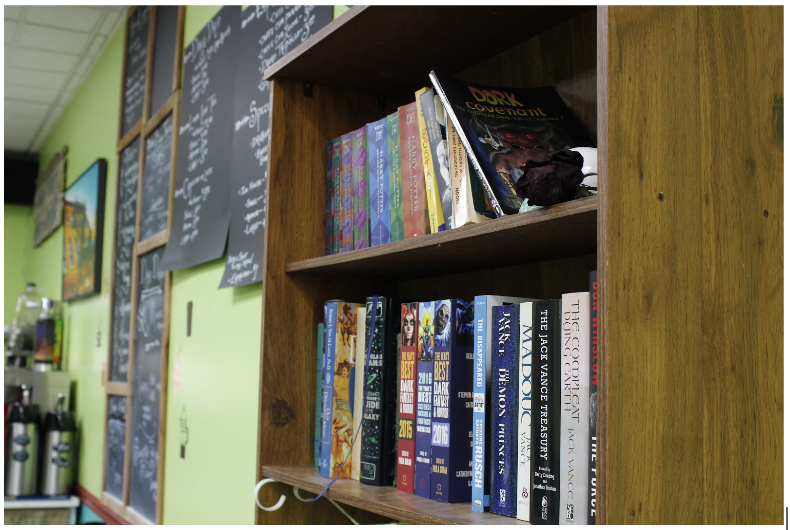What can you do with an English degree? Every English major has heard this question too many times to count . . . from friends, family, bosses, coworkers, teammates, and the list can go on and on. I know this because I was once an English major. By the time I finished graduate school in English, I had fielded that question for fifteen years. And honestly, during that time, I didn’t know how to answer it. I would shrug my shoulders and say, “I don’t know. Teach? I guess?”
Now that I am in fact a teacher, I want my English students, and students across the humanities, to have a much better answer to that question than I did. Teaching is one fine profession to pursue with an English degree, but in reality, English majors pursue a wide variety of career paths. Helping that reality come alive for current and future students is where this project comes in.
“Literature and Professional Life: A Digital Life Stories Archive” is an ongoing research project that uses oral history methodologies to gather information about the professional experiences of Denison English department alumni. It’s easy enough to find data attesting to the salary ranges and variety of career paths for English majors, but showing students a pie chart won’t necessarily spark their imagination or help them understand how an English degree can get them from A to B on a certain career path. “Literature and Professional Life” is not a data-gathering endeavor; rather, its goal (or at least one of its goals) is to demystify the transition from college to the professional world by capturing the stories of people who have been there.
In her introductory post to the OHLA blog , Emily Yochim rightly warns against the neoliberalizing trend in higher education, which “encourage[s]” students “to calculate the ‘return on investment’ for their education in terms of post-graduate salary.” Such an attitude steers students away from the ostensibly less profitable arts and humanities majors. Indeed, a report by the Georgetown University Center on Education and the Workforce does just that. But if you read past the executive summary of the report and dig into the data, you’ll find, as Robert Matz reported at a 2016 MLA panel, that humanities majors, including English majors, may not, on average, be swimming in money, but like all bachelors degrees, English degrees “yield a significant economic payoff.” Nevertheless, data captures just one sliver of a very complex reality. Oral histories, by contrast, flesh out the totality of situation filling in fine details and connecting the dots between a series or cluster of events. My hope is that hearing about the fulfilling, varied, and, yes, sometimes complicated professional lives some English graduates have led may reduce students’ anxieties about their post-collegiate lives so they can truly commit to, trust in, and indulge in the holistic educational model of a liberal arts curriculum.
In the English department, we read lots of stories, so it’s ironic, I think, that English faculty rarely engage with oral history, a research methodology grounded in storytelling. I am representative of this trend. Until I began this project, my own research agenda had been a traditional one: researching and composing literary analysis articles to be published in refereed academic journals. I am new to the field of oral history, so my contributions to OHLA will record the perspective of a wide-eyed rookie in an effort to help other newcomers.
Some of my colleagues in this collective will be writing about the pedagogical possibilities intrinsic to the oral history collection process, but as the foregoing discussion of the project implies, I am particularly interested in the pedagogical uses of an already established oral history archive. I along with my research assistant, Olivia Geho, have already collected a pilot archive of 30+ interviews with Denison English department alumni. We are now in the process of figuring out how to use the video footage toward a few different objectives: provide resources for current and future English and humanities students as they consider how their degree will eventually translate into careers; combat pervasive anti-humanities rhetoric; and contribute to a book-length study of the rise of the professional classes in the twentieth century and their impact on literature.
For these reasons, many of my contributions to the OHLA blog will attend to the exhibition and dissemination processes of digital oral history research methodologies with a specific focus on pedagogical objectives. How can students participate in the exhibition and dissemination of the archive, and what do they learn from that process? What might the incorporation of the archive alongside traditional literature teach students about the process of storytelling? How might pedagogical uses of the archive leverage core liberal arts methodologies to help students critically address the pressures to be “career minded”? These are just some of the questions I hope to address as the project moves forward, and I hope sharing my experiences will help OHLA in its mission to explore the potential oral history research methods have to enrich the liberal arts experience for students and faculty.
